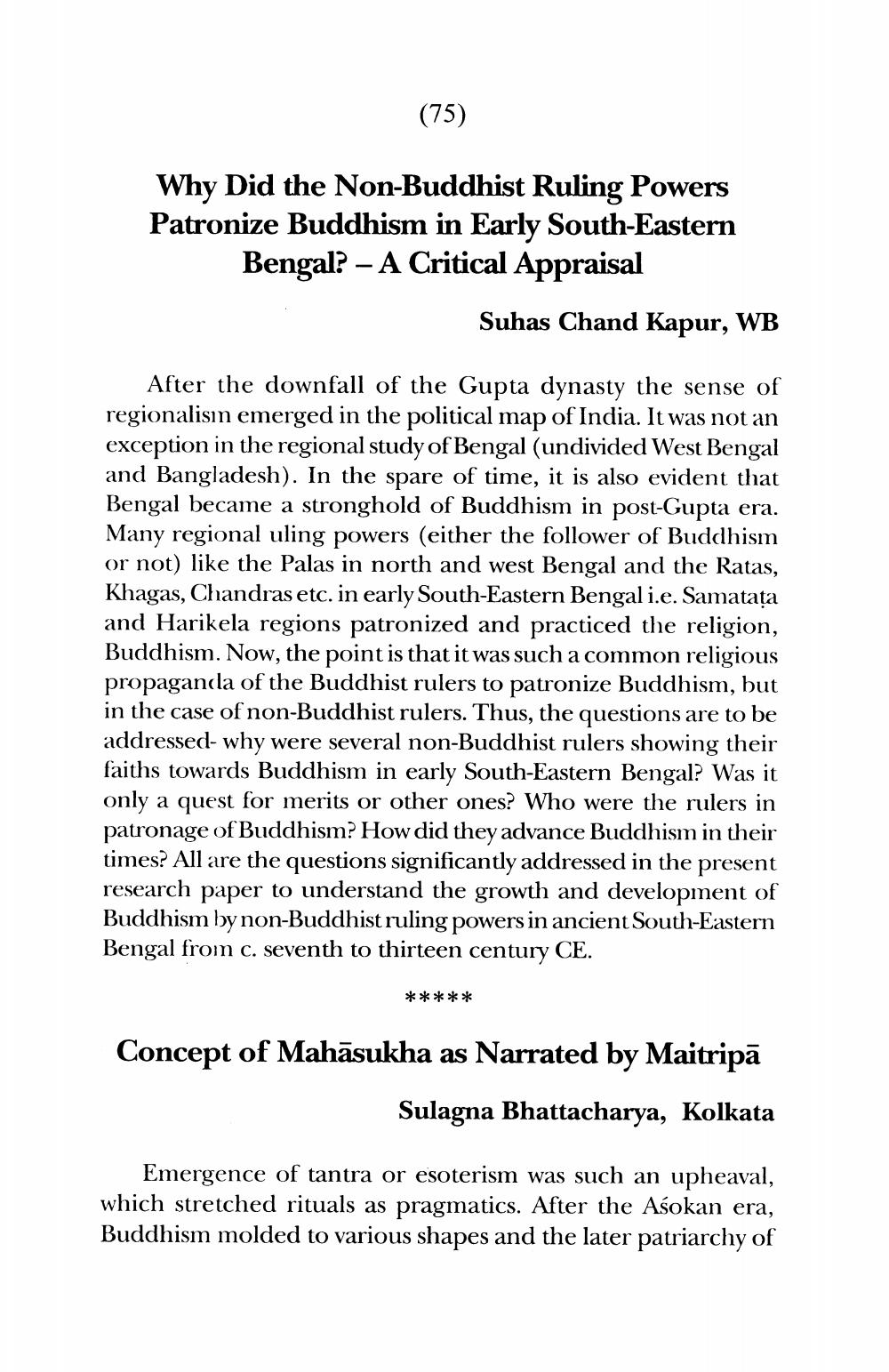________________
(75)
Why Did the Non-Buddhist Ruling Powers Patronize Buddhism in Early South-Eastern
Bengal? – A Critical Appraisal
Suhas Chand Kapur, WB
After the downfall of the Gupta dynasty the sense of regionalisin emerged in the political map of India. It was not an exception in the regional study of Bengal (undivided West Bengal and Bangladesh). In the spare of time, it is also evident that Bengal became a stronghold of Buddhism in post-Gupta era. Many regional uling powers (either the follower of Buddhism or not) like the Palas in north and west Bengal and the Ratas, Khagas, Chandras etc. in early South-Eastern Bengal i.e. Samatata and Harikela regions patronized and practiced the religion, Buddhism. Now, the point is that it was such a common religious propaganda of the Buddhist rulers to patronize Buddhism, but in the case of non-Buddhist rulers. Thus, the questions are to be addressed-why were several non-Buddhist rulers showing their faiths towards Buddhism in early South-Eastern Bengal? Was it only a quest for merits or other ones? Who were the rulers in patronage of Buddhism? How did they advance Buddhism in their times? All are the questions significantly addressed in the present research paper to understand the growth and development of Buddhism by non-Buddhist ruling powers in ancient South-Eastern Bengal from c. seventh to thirteen century CE.
*****
Concept of Mahāsukha as Narrated by Maitripā
Sulagna Bhattacharya, Kolkata
Emergence of tantra or esoterism was such an upheaval, which stretched rituals as pragmatics. After the Aśokan era, Buddhism molded to various shapes and the later patriarchy of




